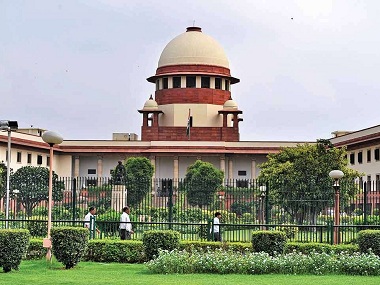In the last week, unnoticed by most, the Supreme Court found another means to give itself a major self-inflicted wound. It has, abruptly and without prior notice or warning, stopped uploading the resolutions of the Supreme Court collegium recommending High Court and Supreme Court judges for appointment. From October 2017, the resolutions provided brief but tantalising glimpses of the process by which nominees were recommended by the collegium. It allowed a little bit of transparency into a process that has been consistently criticised for its opacity and arbitrariness. [caption id=“attachment_6604251” align=“alignleft” width=“380”]  Supreme Court of India. Reuters[/caption] In the resolutions uploaded on the Supreme Court website over two years, one can see that the quantity of information increases as time goes by. The first resolution uploaded was pretty basic but by the time it was abruptly stopped, the collegium was even listing out complaints against nominees and addressing them head on. Each resolution listed out how many names had been sent across by the high court collegiums, what procedure had been followed, and whether a name was being rejected or deferred if not recommended for further appointment. It is possible that the publication of the resolutions made the collegium change the process to an extent — all potential high court nominees were invited to an interaction with judges of the Supreme Court collegium before final decisions were taken. While not an “interview” in the strictest sense and no details were given of such interactions, it showed that the judges of the collegium were willing to change and update the process to keep up with changing needs. There is no doubt that much, much more could have been done in terms of transparency. For instance, save for the last resolution, no resolution went into the reasons for the nomination of a judge. While it is understandable that the collegium might not want to put out negative information about a candidate without appropriate procedures and protections, even if it gave reasons as to why it thought a given candidate was suitable for appointment, it would have been an immense improvement to the collegium system of appointments. All of this has now been replaced with bland “statements”. Take for example the “statement” about the appointment of one advocate and two judicial officers to the Gauhati High Court based on the meeting of the collegium on 15th October, 2019. It just lists the names of the persons recommended and provides no further details. Why has this practice been stopped? It is unclear as no resolution of the collegium has been uploaded stating that the practice will be stopped. This is all the more legally dubious since the practice was started as a result of the collegium resolving to make resolutions public. This move to stop making resolutions public is all the more significant since as pointed out on LiveLaw, three controversial decisions have been taken by the collegium - the transfers of Justice Rakesh Kumar and Chief Justice AP Sahi of the Patna High Court, and the elevation of P Krishna Bhat to the Karnataka High Court. The first two had been embroiled in a controversy over a controversial order passed by Justice Kumar alleging corruption on the part of judges of the Patna High Court whereas the latter had his earlier nomination held back because of allegations of sexual harassment against him. While the reasons for both nominations may be good and justified, in the absence of any information about them, and when it comes along with a move to stop making collegium resolutions public, this will only give rise to unnecessary speculation. At a time when the collegium has come under increasing pressure from all quarters over some of its more controversial decisions, to simply refuse to disclose any more information about its decisions smacks of institutional cowardice. That the Supreme Court, with all its constitutional powers and storied history, cannot stand to hear the public criticism of the Bar and citizens speaks volumes for the court’s own confidence in its performance. This is not new. Individual judges have shown their thin skins on multiple occasions — whether it is Justice Ranjan Gogoi (as he then was) holding Markandey Katju in contempt for an article criticising a judgement or more recently, Justice Arun Mishra complaining in open court about being criticised on social media. It is unfortunate that this tendency has seeped into how the institution itself responds to public criticism of its actions. Whatever the Supreme Court collegium hopes to achieve by making resolutions secret once again — avoid scrutiny, escape criticism or enhance its image — it is bound to fail. One hopes that the collegium realizes the folly of this move immediately and, not only restores its earlier decision to make resolutions public, but also proceeds to expand the scope of the information. The author is a Senior Resident Fellow at the Vidhi Centre for Legal Policy, and also an Executive Committee Member of the Campaign for Judicial Accountability and Reforms
That the Supreme Court, with all its constitutional powers and storied history, cannot stand to hear the public criticism of the Bar and citizens speaks volumes for the court’s own confidence in its performance.
Advertisement
End of Article


)

)
)
)
)
)
)
)
)



